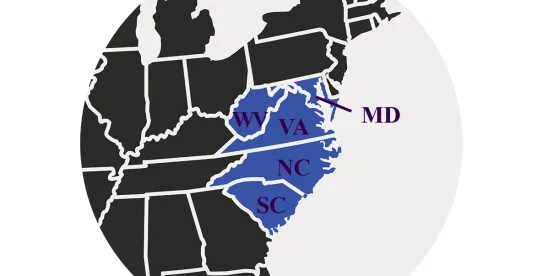The Fair Credit Reporting Act (FCRA) has been a notoriously active area for litigation, especially class-action litigation, in recent years. One issue that continues to be litigated in FCRA cases involving data furnisher liability is the scope of a review that the furnisher must undertake when a consumer dispute is lodged. In particular, courts have been asked in recent years to decide whether consumer disputes involving legal issues, as opposed to disputes over factual inaccuracies appearing in a consumer’s tradeline, fall within the scope of a review required under the FCRA.
Recent decisions from multiple appellate circuits have taken varying approaches to resolve this issue. Adding to the developing authority on this issue, a recent ruling by the Fourth Circuit determined that furnishers must investigate disputes that are based on information that is objectively and readily verifiable, regardless of whether the dispute involves legal or factual issues.
Background of the Case
The case, Roberts v. Carter-Young, Inc., 131 F.4th 241 (4th Cir. 2025), involved a consumer, Shelby Roberts, who disputed a tradeline on her credit report related to the termination of a prior residential lease. Prior to the tradeline being reported, Roberts’ landlord determined that she was unwilling to pay this debt, and it referred the debt to a collection agency, Carter-Young. Carter-Young later reported the debt on Roberts’ tradeline. Roberts disputed this tradeline with the three major credit reporting agencies (CRAs). When notified of this dispute, Carter-Young limited its investigation to confirming the debt with the landlord.
Believing this tradeline review was insufficient, Roberts brought suit under the FCRA. The District Court dismissed Roberts’ claim, finding that her dispute centered upon legal disputes as opposed to factual inaccuracies, and it was therefore not covered by the FCRA’s investigation requirements. On appeal, however, the Fourth Circuit vacated the District Court’s dismissal and remanded the case for further proceedings.
A New Standard in the Fourth Circuit
The legal holding the Fourth Circuit set forth as to the scope of a data furnisher’s review when a tradeline dispute is lodged is notable. Resolving the legal vs. factual issue for the first time in the Fourth Circuit, the court ruled that furnishers must investigate disputes that are based on information that is objectively and readily verifiable, regardless of whether the dispute involves legal or factual issues. This standard mirrored the standard adopted by the Second Circuit in Sessa v. Trans Union, LLC, 74 F.4th 38 (2d Cir. 2023) and the Eleventh Circuit in Holden v. Holiday Inn Club Vacations, Inc., 98 F.4th 1359 (11th Cir. 2024).
However, the Fourth Circuit did not completely reject the possibility that some legal disputes exceed the purview of the FCRA, recognizing the limitations of a furnisher’s investigation. But under this ruling, a furnisher is expected to make reasonable efforts to verify disputed information — even in a legal dispute — so long as the information to be reviewed is objectively and readily verifiable. As to Roberts’ claims specifically, the Fourth Circuit viewed her underlying dispute about whether the debt was owed as something that needed to be determined at the District Court level under the clear and readily verifiable standard.
Implications for Furnishers
For furnishers subject to a lawsuit in the Fourth Circuit’s geographical area, this ruling seems to impose a greater responsibility to conduct thorough investigations of tradeline disputes where the disputed information is clear and verifiable. This responsibility likely adds a new layer of review for furnishers that had been accustomed to conducting a reinvestigation of facts readily available in their records, as certain legal disputes will now also need to be resolved.
Of course, the adoption of legal verbiage such as “objectively and readily verifiable” isn’t likely to end litigation on this issue. At least in the Fourth Circuit (and in the Second and Eleventh Circuits), litigation will likely now center upon whether specific information is actually objectively and readily verifiable and therefore subject to a furnisher liability claim — or whether it falls outside the scope of the FCRA because it is not objectively and readily verifiable. In some ways, this standard is now even more amorphous than before, where it was easier to identify whether a dispute was over a specific fact or over a legal determination. It will bear watching whether other appellate circuits adopt similar or differing standards in the coming months and whether this issue surfaces before the Supreme Court at some point.





 />i
/>i

